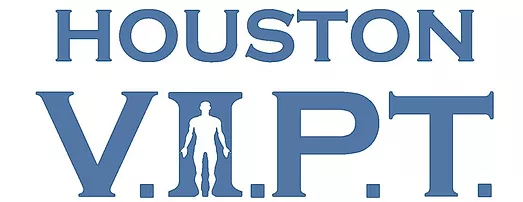Those of you in the Houston area are by now familiar with extreme heat like we’ve been having. Most locals would not call it “extreme”, they would call it “summer”, but for an East coast native like myself, it’s hot! Let the record show, I’m not complaining, I actually love the heat for the most part.
This past weekend I had a short window (baby nap time) to go on a run which happened to be at 1pm and about 95 degree heat, feels like 105. With my water now warm and bottle nearly empty I felt my body temperature rising and decided to walk a bit before running the last few minutes.
The run got me thinking about the “rules for hydration”. I did a quick literature review to see what science has to say, and I’ve written a synopsis here in hopes of helping others stay healthy with or without being active in weather hot enough to fry an egg on the sidewalk.
Pre-activity: It is recommended to drink approximately 13.5-20 ounces 2 hours before activity (1).
During activity: Recommended to drink 5-10 oz of water every 15-20 minutes **more if you are doing high intensity activity**(1). In fact, in high intensity activity you can LOSE through sweat, 2 liters/hr (that’s 67.6 ounces)(2) which means you would have to drink a little over 20 oz every 20 minutes (or 1 ounce/minute but it would be hard to stay “intense” if you stop every minute to drink)
Post activity: Just do the math. If you were running hard for 1 hr and only drank a 16 oz bottle of Kirkland water, you probably lost about 2 liters (67.6 oz) and replaced 16 oz, so you’re about 50 oz behind as your yellow urine would confirm. Urine color is something that many research studies point to as the most reliable indicator of hydration level.
Water or Gatorade? I’m not being sponsored by Gatorade (but I’m open to it Gatorade CEO reading this!) so let’s address the topic of when water is sufficient vs. Gatorade or similar drinks.
After activity: It is recommended in rehydration, after prolonged intense exercise and high levels of fluid depletion (>5% body weight) to drink a Gatorade-type drink especially if a quick recovery is needed (3,4).
During activity: Typically, water is preferable for hydration during short term activity <90 mins. For prolonged activity of >90 minutes however, Gatorade-type drinks are recommended (1). The science behind this is that in shorter term activity our goal is simply to keep our body fluid levels up in order to use the fluid as sweat to keep our body temperature down and maintain a high plasma volume so our heart can work at a normal level. After 90 minutes however, our glucose and electrolyte levels are diminished and in order to continue getting energy from oxidation and to keep up our body water levels, we need to provide additional glucose to our body (3), so bring on the Gatorade! This energy source explains why the drinks are able to improve performance, though that does not mean that if you drink 2 liters of Glacier Freeze you’ll be able to dunk.
What is Dehydration so bad:
-dehydration means lower blood plasma levels which means the heart has to pump harder and more frequently in order to pump out the same amount of blood as in normal conditions.(5)
-dehydration means less water available in our system to use as sweat. Sweat is important because it keeps our body temperature down.(5)
-dehydration leading to lower plasma levels also means increased viscosity of body fluids causing the kidneys to work harder.
2 more points:
-We acclimatize to heat in about 10 days. This goes for people working in the heat or doing athletic activity. The takeaway is to be especially careful those first 10 days in a hot place (Houston transplants), as sweat and sodium losses can be more extreme and thus dangerous.
-Workers in hot places (landscapers, construction etc…) can lose up to 10-12 liters/day on an 8-10 hr shift. The same principles apply for matching water intake to sweat output. An acclimatization period also applies.
For a great summary, see ACSM statement on Exercise and Fluid Replacement
Thank you for reading and please stay active, healthy and safe through these hot summer months.
-Dr. Ben Engelhart PT, DPT
This article is not intended to replace professional medical treatment, please consult your doctor if you exhibit signs or symptoms consistent with dehydration.
For a great summary, see ACSM statement on Exercise and Fluid Replacement
References:
1-Latzka WA1, Montain SJ. Water and electrolyte requirements for exercise. Clin Sports Med. 1999 Jul;18(3):513-24.
2- Barry M. Popkin, Kristen E. D’Anci, and Irwin H. Rosenberg. Water, Hydration and Health. Nutr Rev. 2010 Aug; 68(8): 439–458.
3-Shirreffs SM1, Sawka MN. Fluid and electrolyte needs for training, competition, and recovery. J Sports Sci. 2011;29 Suppl 1:S39-46.
4- Galloway SD1. Dehydration, rehydration, and exercise in the heat: rehydration strategies for athletic competition.
Can J Appl Physiol. 1999 Apr;24(2):188-200.
5-Sawka MN1. Physiological consequences of hypohydration: exercise performance and thermoregulation. Med Sci Sports Exerc. 1992 Jun;24(6):657-70.


